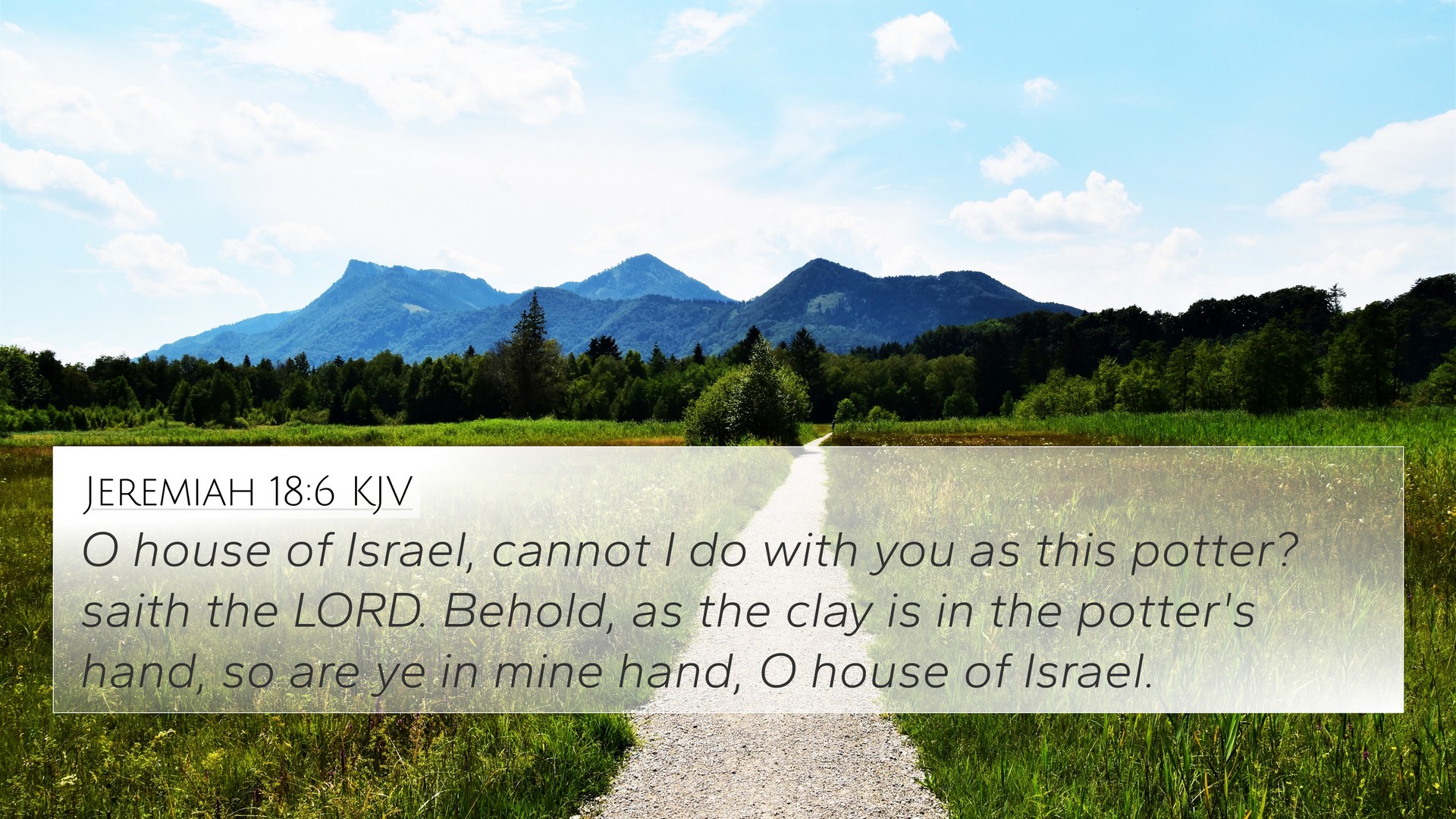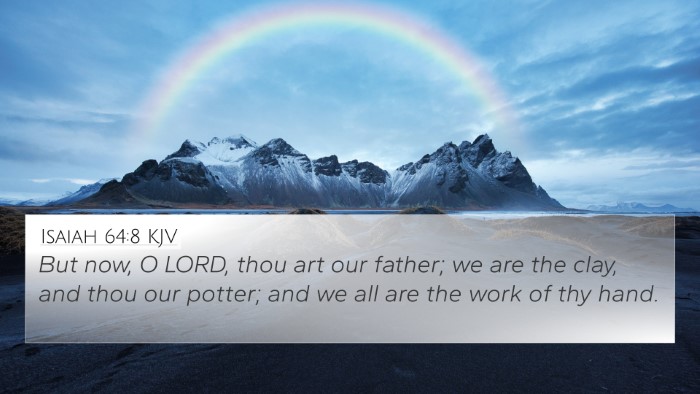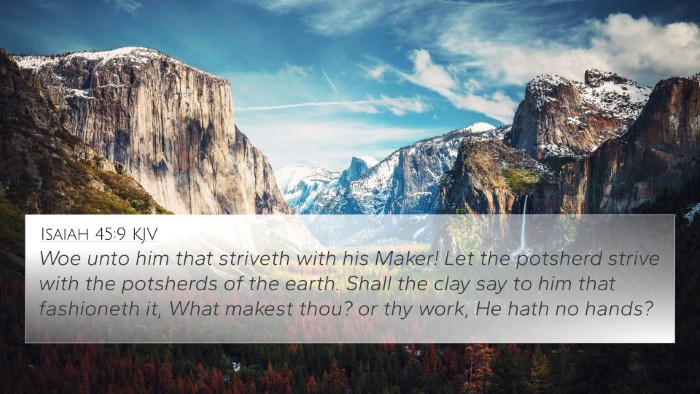Understanding Jeremiah 18:6
Jeremiah 18:6 states, "O house of Israel, cannot I do with you as this potter? saith the LORD. Behold, as the clay is in the potter's hand, so are ye in mine hand, O house of Israel."
This verse encapsulates a profound message of divine sovereignty, human agency, and the intimate relationship between God and His people. The imagery of the potter and clay serves as a powerful analogy, illustrating God's authority over Israel and, by extension, all humanity.
Key Insights from Public Domain Commentaries
Matthew Henry's Commentary
Matthew Henry emphasizes the potter's control over the clay, highlighting the theme of absolute sovereignty. He notes that just as a potter shapes and molds the clay, so does God have the power to shape the destinies of nations. This reflects God's willingness to change His plans based on the responsiveness of His people; however, this also conveys the serious implications of rejecting God's shaping work.
Albert Barnes' Notes
Albert Barnes focuses on the relationships between the potter and the clay. He points out that this dynamic illustrates God’s patience and long-suffering. Just as a potter can reshape flawed clay, God offers opportunities for repentance and reformation. Barnes reminds readers that individual and collective responses matter immensely; the decisions we make can lead to divine judgment or mercy.
Adam Clarke's Commentary
Adam Clarke underscores the nature of divine judgment in relation to God's intent. He explains that the verse serves as both a warning and an assurance. While God has the authority to judge, there exists an opportunity for redemption if His people choose to turn back to Him. Clarke reinforces the notion that this verse encourages humanity to recognize our dependence on God's mercy.
Bible Cross References for Jeremiah 18:6
- Isaiah 29:16 - "Surely your turning of things upside down shall be esteemed as the potter's clay..." This reflects similar imagery of God's authority over creation.
- Romans 9:21 - "Hath not the potter power over the clay?" This verse directly parallels Jeremiah 18:6, reinforcing themes of sovereignty.
- Isaiah 64:8 - "But now, O Lord, thou art our father; we are the clay, and thou our potter..." Here, the relationship between God and humanity as the potter and clay is reiterated.
- 2 Timothy 2:20-21 - "But in a great house there are not only vessels of gold and silver, but also of wood and of earth..." This highlights the purposeful creation by God in a varied creation.
- Psalm 139:13-16 - "For thou hast possessed my reins: thou hast covered me in my mother's womb." This links the idea of divine craftsmanship in human creation.
- Malachi 2:17 - "Ye have wearied the Lord with your words..." This reflects how the people’s behavior affects God’s response, similar to how clay can be made anew or cast aside.
- Jeremiah 1:5 - "Before I formed thee in the belly I knew thee..." This reinforces the idea of God's intimate involvement in our creation, aligning with the theme of the potter and clay.
Thesis of God's Authority and Human Responsibility
The central theme of Jeremiah 18:6 emphasizes the interplay between God's sovereign will and human free will. While God can shape and mold nations and individuals, there exists a continuous dialogue where human choices have profound implications.
As believers study this verse, it invites reflection on their responses to God’s calling and shaping work in their lives. It asks a pertinent question: Are we allowing God to mold us as to become vessels for His purpose?
Practical Applications of Jeremiah 18:6
For those seeking to apply the teachings of this verse, consider the following:
- Embrace spiritual formation - Just as clay is shaped by the potter, allow God to shape your character and decisions.
- Engage in reflective prayer - Seek God’s guidance on areas of your life that require transformation.
- Participate in community fellowship - Share and discuss how God is shaping you with others to encourage mutual growth.
- Utilize a Bible concordance for deeper study, finding other passages that explore themes of divine craftsmanship.
Conclusion
Jeremiah 18:6 serves as a powerful reminder of God’s sovereignty and love, inviting us into a deeper relationship with Him. As we engage with this verse and cross-reference it with others, we uncover rich biblical themes and truths that urge us toward transformation. In our journey, let us acknowledge our role as clay in the hands of our divine Potter.









